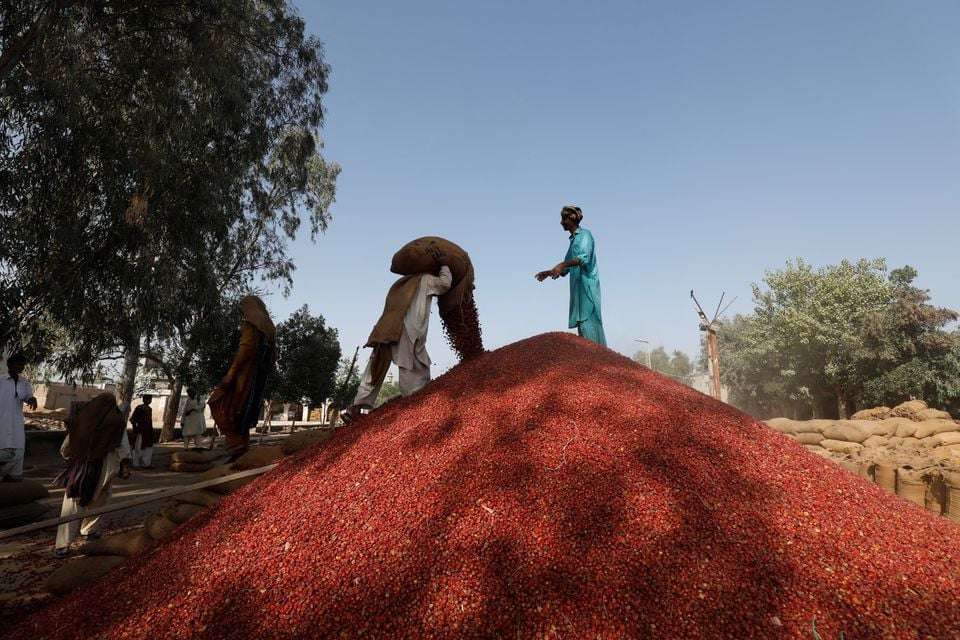
|
Getting your Trinity Audio player ready...
|
Introduction
In a significant move to align with international labour standards, the government of Pakistan has decided to ratify the Protocol to the Forced Labour Convention, 1930 (P-029). This decision is a crucial step towards strengthening Pakistan’s international trade relationships, particularly with the European Union (EU), which has stringent human rights criteria for trade partnerships. The ratification will further demonstrate Pakistan’s commitment to eradicating forced labour and promoting decent work, aligning with the country’s human rights obligations.
The Importance of Ratifying the Forced Labour Convention
Pakistan’s Commitment to Human Rights
The forced labour convention is a fundamental part of the International Labour Organisation (ILO) framework. Pakistan’s ratification of the protocol will reaffirm its commitment to abolishing forced labour and ensuring human rights are respected in the workforce. Pakistan has been a member of the ILO since 1947 and has already ratified 36 of the 191 ILO conventions. The decision to ratify P-029 is in line with the nation’s ongoing efforts to strengthen its labour rights and improve its international standing.
EU’s Role in the Decision
One of the key drivers behind this decision is Pakistan’s trade relations with the European Union. The EU has introduced stricter trade conditions under its due diligence directive, requiring trade partners to meet human rights standards. By ratifying the Forced Labour Convention, Pakistan is ensuring that it complies with these international standards, reducing the risk of facing restrictions or sanctions from its major trade partners. This move aims to foster stronger economic ties with the EU, which is one of Pakistan’s largest trading partners.
Impact of Ratifying the Forced Labour Convention
Preventing Trade Restrictions
The cabinet’s decision to ratify the protocol comes after concerns that delays in ratification could harm Pakistan’s reputation in the global trade community. The EU, along with other international stakeholders, has increasingly emphasized the importance of human rights in trade agreements. Failure to comply with the forced labour convention could lead to restrictions or even sanctions, which would negatively impact Pakistan’s exports and foreign trade.
Improvement in Pakistan’s Global Standing
Ratifying the protocol will enhance Pakistan’s global image, especially in relation to its efforts to combat human trafficking, modern slavery, and forced labour. This aligns with Pakistan’s goal of improving its ranking in global human rights assessments, such as the US Trafficking in Persons (TIP) report, where the country has already seen improvements. The ratification will serve as a formal commitment to comply with international labour standards and the ILO’s supervisory mechanisms, which will further strengthen Pakistan’s international reputation.
Implementation of the Protocol
ILO’s Assistance in Addressing Forced Labour
The Ministry of Overseas Pakistanis and Human Resource Development (OP&HRD) has been working with the ILO to assess the current national legislation on forced labour. In 2021, a detailed gap assessment was conducted with the technical assistance of the ILO’s country office. This assessment identified areas where national laws need to be strengthened to fully align with the provisions of the Forced Labour Convention. Subsequent workshops were held in 2021 and 2023 to disseminate the findings and discuss necessary legislative changes.
Ongoing ILO Support
The ILO’s Bridge project, which runs from 2023 to 2025, will continue to support Pakistan in addressing forced labour issues, particularly in regions where forced labour is most prevalent. The project works with federal and provincial agencies to design targeted interventions aimed at eliminating forced labour from industries such as agriculture and manufacturing.
Strengthening National Laws
Following the ratification, Pakistan will need to align its domestic laws with the provisions of the Forced Labour Convention. The Ministry of OP&HRD has developed a set of criteria for prioritizing the ratification of international labour standards, and the federal tripartite consultation committee has endorsed the ratification of P-029 for 2024.
Implications for Pakistan’s Trade with the EU and Other Partners
The UK’s Developing Countries Trading Scheme
The ratification of P-029 is also crucial for Pakistan’s trade relations with the United Kingdom. The UK has introduced a new Developing Countries Trading Scheme, which replaces the previous Generalized Scheme of Preferences (GSP). Under this new scheme, P-029 is included as a requirement for trade, further incentivizing Pakistan to ratify the protocol to maintain its preferential trade status with the UK.
Enhancing International Cooperation
By ratifying the forced labour protocol, Pakistan will strengthen its cooperation with multilateral organizations, NGOs, and international trade partners. This will improve Pakistan’s ability to mobilize resources and attract foreign investments, particularly from regions that prioritize ethical labour practices. The commitment to eradicating forced labour will also create opportunities for Pakistan to participate in global initiatives aimed at improving working conditions and advancing workers’ rights.
Key Benefits of Ratifying the Forced Labour Convention
Enhancing Labour Rights and Protecting Workers
The ratification of P-029 will play a critical role in improving the conditions of workers in Pakistan. It will help establish a legal framework to protect workers from exploitation, particularly in industries prone to forced labour. This will provide greater protection for vulnerable workers, including those in the agriculture, manufacturing, and construction sectors.
Promoting Sustainable Development
Ratifying the forced labour convention is in line with Pakistan’s commitment to the United Nations’ Sustainable Development Goal (SDG) 8, which aims to promote decent work for all. By ensuring that workers’ rights are respected, Pakistan can foster a more sustainable and equitable labour market, which will contribute to long-term economic growth and stability.
Conclusion
Pakistan’s decision to ratify the Protocol to the Forced Labour Convention, 1930, is a significant step toward aligning with international human rights standards. This move is expected to bolster Pakistan’s trade relations, particularly with the European Union and the United Kingdom, by ensuring compliance with their stricter human rights and labour standards. Furthermore, the ratification will enhance Pakistan’s global image, promote decent work, and provide greater protection for workers, ultimately contributing to the country’s economic and social development.
FAQs
1. Why is Pakistan ratifying the Forced Labour Convention?
Pakistan is ratifying the protocol to align with international human rights standards, particularly to comply with trade requirements set by the European Union and the United Kingdom, and to improve its global standing in addressing forced labour.
2. How will ratifying the protocol affect Pakistan’s trade with the EU?
Ratifying the Forced Labour Convention will help Pakistan avoid trade restrictions and sanctions from the EU, ensuring continued access to the European market, which is vital for Pakistan’s economy.
3. What is the ILO’s role in Pakistan’s efforts to eliminate forced labour?
The ILO has provided technical assistance to Pakistan to assess its current laws on forced labour and to design targeted interventions aimed at eliminating forced labour from various sectors.
4. What are the benefits of ratifying the Forced Labour Convention for Pakistan?
Ratification will enhance Pakistan’s international reputation, improve labour rights within the country, and promote sustainable economic development by ensuring decent work for all.
5. How will the ratification of the protocol impact workers in Pakistan?
The ratification will provide greater legal protection for workers, particularly in industries where forced labour is prevalent, and will help establish a framework for improving working conditions.
ALSO READ:
https://skipper.pk/2024/12/03/volkswagen-strikes-wage-dispute-plant-closures/






